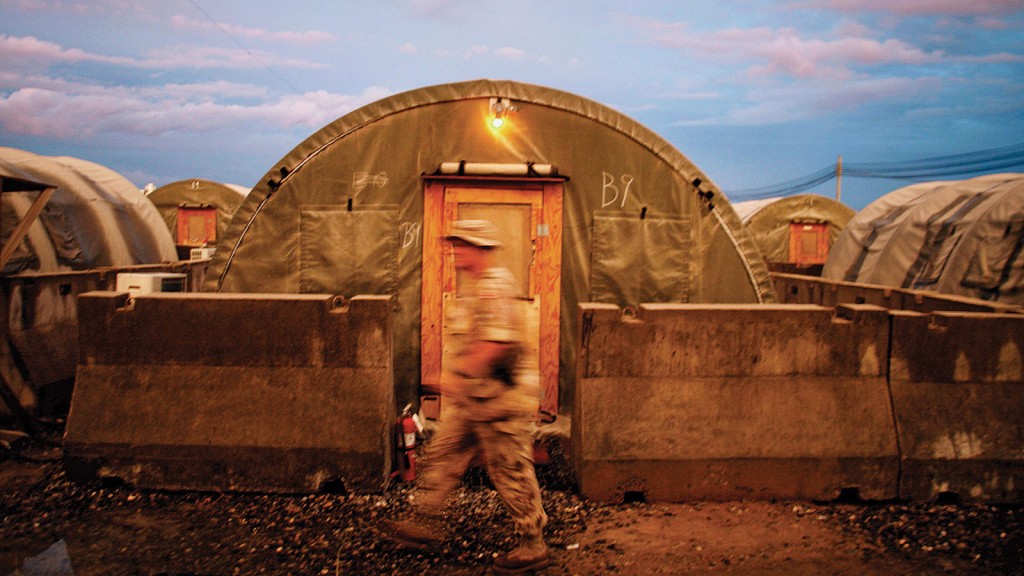Former corporal wins apology from military over alleged sex assault
From the archives: Chief of Defence Staff Gen. Tom Lawson to Stéphanie Raymond: ‘I’ve come to the conclusion you were wronged’
Stephanie Raymond in uniform.
Share

Three years after accusing a superior of sexually assaulting her, former corporal Stéphanie Raymond has scored a resounding victory in her case against the Canadian military.
Related: Our military’s disgrace: An investigation of sexual violence plaguing our soldiers
In a letter dated Dec. 18, 2014, and obtained by L’actualité, Canada’s Chief of Defence Staff Gen. Tom Lawson rules in Raymond’s favour, finding she was treated unjustly by the military after filing a complaint against a higher-up, and awarding her compensation. The letter is highly critical of Raymond’s former superiors, concluding they failed in their professional duties, and includes an unequivocal apology to Raymond: “I would like to think […] you will once again be able to respect our institution now that we’ve finally been respectful with you. I am sincerely sorry for the way you were treated.”
In addition to his findings, Lawson has also ordered an internal inquiry into the way Raymond’s chain of command failed her. The superiors who made her life miserable will have to answer for their behaviour.
For Raymond, Lawson’s letter is the culmination of a judicial and administrative battle that not only cost her her career, but also influenced her health and that of her partner. “It’s good news,” she says. “I’m satisfied with the decision. I can turn the page before the end of 2014. But the inquiry must absolutely result in disciplinary measures against the people who mistreated me. They should pay for having ruined my career. They shouldn’t get away with it.”

Raymond’s story — and others like it — came to national attention last April with the publication of a shocking investigation in L’actualité and Maclean’s that shed light on the ordeal that members of the military have faced after complaining about sexual violence. Victims said it was not only hard to be taken seriously by the military, but that they faced rejection, threats and punishment after denouncing one of their own.
Warrant Officer André Gagnon, who Raymond accused of sexually assaulting her inside a Quebec City-area military building on Dec. 15, 2011, was acquitted this past August after a highly publicized court martial. Lawson’s letter does not call into question the verdict (which is under appeal), focusing instead on the way Raymond was treated by the military hierarchy. “After examining your grievance, I’ve come to the conclusion you were wronged,” Lawson wrote. “Your chain of command did not act in a way that was consistent with policies and directives. We failed in our professional duty to protect your well-being, beginning at the moment you filed your initial complaint.”
Raymond filed a complaint with military police in January 2012, but it was dismissed after a botched investigation. It was only after Raymond fought relentlessly to have the case reopened by police that Gagnon was charged with sexual assault in the fall of 2013, nearly two years after the alleged incident.
In the meantime, however, Raymond’s career had taken a turn for the worse: her superiors seemed to have turned against her, pressuring her to drop the case, denying her a promotion, repeatedly reprimanding her, and rejecting her applications for jobs for which she was seemingly qualified. Finally, in December 2013, Raymond was dishonourably fired for misconduct and declared “unsuited to military service.” Raymond had, until then, been a model soldier, with nary a negative performance evaluation on her record, but she was now considered “an excessive administrative burden on the Canadian Forces.” The former corporal subsequently filed several grievances to restore her standing within the military.
Raymond’s grievances are the subject of Lawson’s detailed, 21-page report. Her file landed on Lawson’s desk in July, after climbing through the ranks of the military’s byzantine grievance system. Before Raymond’s case was handed to Lawson, an administrative entity within the military had recommended Raymond be compensated. The Chief of Defence Staff nonetheless had final say in her case, and Lawson unequivocally sided with Raymond, finding in her favour on six key issues:
- A reprimand over a Facebook post that was highly critical of the military has been stricken from Raymond’s file.
- Raymond has been retroactively promoted to the rank of master corporal and will receive backpay.
- Lawson acknowledges that the selection process for jobs within the military was biased against Raymond.
- Raymond’s dismissal has been annulled, allowing her to instead resign – voluntarily – from the military.
- Raymond could be eligible for financial damages.
- An inquiry into her case has been opened.
Meanwhile, a separate independent review of the military’s policies with respect to sexual violence has been ongoing for the past six months. Headed by former Supreme Court justice Marie Deschamps, the review was launched following the publication of L’actualité’s investigation and its findings are expected to be released next spring.
The chief of defence staff has yet to respond to repeated requests for an interview. At a House of Commons committee hearing in May, Lawson vigorously insisted that sexual violence is not tolerated within the military’s ranks and reiterated that the chain of command has a duty to protect alleged victims who’ve filed complaints. He nonetheless conceded there remains “a gap” between official policy and the way complaints are handled on the ground. Judging by his letter to Stéphanie Raymond, “a chasm” may be a more accurate description.